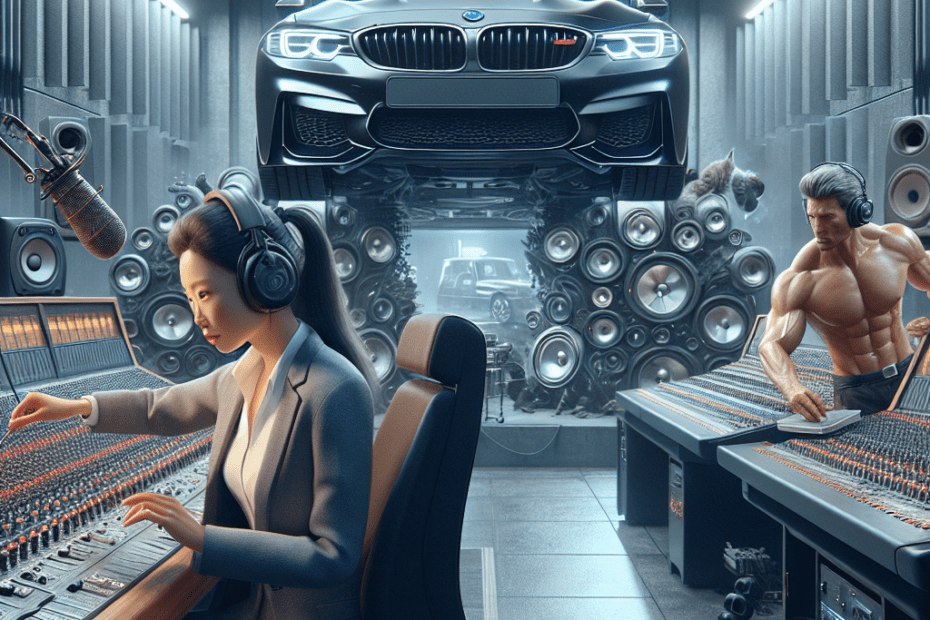The Art of Automotive Sound Design: Car Sound Engineering
When most people think of cars, they imagine sleek designs, powerful engines, and the thrill of driving. However, an often overlooked aspect of the automotive experience is the sound produced by the car. Car sound engineering plays a critical role in shaping how drivers feel behind the wheel. By carefully designing and engineering the sounds that cars make, experts can enhance driving experiences, safety, and brand identity.
The Importance of Car Sound Engineering
Car sound engineering is a fascinating blend of science and art. Engineers use a variety of techniques to ensure that every click, whirr, and roar amplifies the brand’s identity and enhances user experience. According to a J.D. Power study from 2023, 34% of drivers report that their vehicle’s sound significantly impacts their overall satisfaction. This statistic underscores how important sound has become in the automotive industry.
How Car Sound Engineering Enhances Experiences
They use sound engineering to make every drive more enjoyable. This involves selecting materials, designs, and technologies that add the right acoustic layer to the driving environment. For electric vehicles (EVs), one of the biggest challenges is creating an authentic sound since they are usually quieter than traditional vehicles. Engineers work to create sounds that convey speed and power while keeping the environment peaceful.
Key Components of Car Sound Design
- Engine Sounds: Authentic engine sounds are vital, especially in sports cars. When the driver accelerates, they expect to hear a powerful roar that matches the engine’s performance.
- Cabin Acoustics: Inside the vehicle, sound absorption materials are cleverly used to reduce unwanted noise, allowing pleasant sounds to resonate.
- Warning Sounds: Paired with safety features, warning sounds alert drivers and pedestrians, often designed to be distinct and attention-catching.
- Exterior Noise: Laws regulate how much noise cars can emit, especially in urban areas, making it crucial to balance between sound design and compliance.
The Role of Technology in Car Sound Engineering
Advances in technology have opened up new possibilities for sound design in cars. Digital engines and software simulations allow sound engineers to experiment with different acoustics without physical constraints. According to Automotive World, 2023 brought significant improvements in digital sound processing, resulting in clearer and more customizable sounds for vehicles.
| Aspect | Traditional Cars | Electric Vehicles |
|---|---|---|
| Engine Sound | Natural engine noise | Artificially created soundscapes |
| Cabin Acoustics | Focus on noise reduction | Enhance musical sound performance |
| Safety Alerts | Audible alarms | Innovative warning systems |
Key Takeaways
- Car sound engineering is essential in creating an immersive driving experience that aligns with the vehicle’s brand.
- Engineers face unique challenges with EVs since they require engineered soundscapes to emulate traditional car sounds.
- Technology is crucial in advancing sound design, enabling custom sound profiles and better noise management.
- Sound engineering impacts driver satisfaction and plays a role in vehicle safety and compliance with noise regulations.
FAQ: Car Sound Engineering
- What is car sound engineering?
Car sound engineering is the process of designing and managing the sounds produced by a vehicle to enhance the driving experience and convey brand identity. - Why is sound important in cars?
Sound is important because it influences driver satisfaction, safety, and the emotional connection to the vehicle. It also helps in branding cars. - How do electric cars manage sound?
Electric vehicles use engineered sounds and artificial soundscapes to provide audible feedback that is lacking due to their quieter nature. - What role does technology play in automotive sound design?
Technology allows for accurate digital sound processing and customization of soundscapes, creating a tailored acoustic experience for drivers. - Are there regulations for car sound levels?
Yes, many countries impose regulations on vehicle sound levels to prevent noise pollution, particularly in urban environments.
